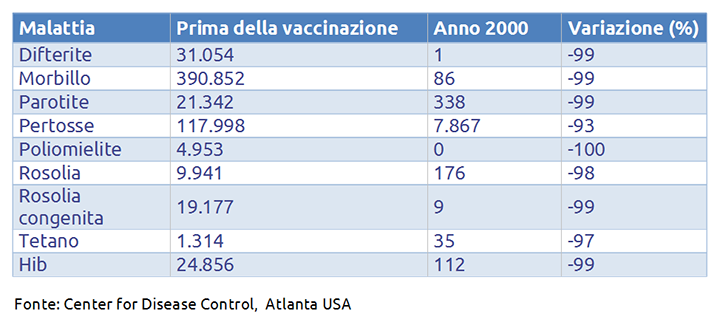Urban legends and vaccines
An urban legend, also called urban myth or more precisely contemporary legend, is an unusual and far-fetched story, usually transmitted verbally and which, at some point in its circulation, is echoed in the media thereby gaining some credibility. In particular, the Internet is the ideal place for spreading fake news as the sources are not often mentioned, the authors are unknown and with media amplification the messages travel very fast. However, to eradicate and demystify some beliefs, it is not enough to provide further facts and information, believing that in this way people take the truth onboard and thus rediscover a bond of trust with science. In reality, this can produce the opposite effect, which only leads to a strengthening of the myth. To undermine a belief, it is not enough to bombard it with facts. Thought is very often selective and tends to seek and preserve that which confirms one's own opinions, ignoring or underestimating what contradicts them. This is also what happens with vaccinations. Below we will discuss some of the most common false beliefs that have no rational premise and to which it can be difficult to respond with scientific literature if not with common sense.
It is false that "Diseases are invented by BIG PHARMA to sell vaccines"
Infectious diseases are as old as the world itself! Reading any text in the history of medicine it is clear that infectious diseases have existed as long as man himself. Consider the leprosy found in Egyptian mummies, bone tuberculosis highlighted in archaeological finds, of epidemics found in ancient sacred texts. Infectious diseases in the past and unfortunately even today in some parts of the world have been the main cause of death and suffering for humanity. All of this centuries before vaccines had been invented and produced!
It is false that "Thousands of diseases are caused by vaccines"
Most vaccines are made up of dead or inactivated particles and therefore it is not clear how they could induce infectious diseases. For attenuated live vaccines, in the vast majority of cases, person-to-person contagion is not possible and, in any case, an infectious epidemic caused by a vaccine has never been scientifically reported. If this statement refers to the possibility that vaccines induce other types of diseases, see previous chapters.
It is false that " bugs to spy on us are injected along with the vaccines"
This statement is both technical and theoretical nonsense! Although infinitesimal, there are no bugs on the market that can be injected using the syringe used in vaccination sessions. Furthermore, to think that all children are marked and followed by persons unknown and for reasons unknown is very implausible. We appeal to the common sense of parents.
It is false that "It is better to catch the natural disease than to get vaccinated"
The innate aim of vaccination is to guarantee the population protection against some infectious diseases (immunity). The difference between vaccination and natural infection lies in the risk you face to achieve this immunity. The price paid for the vaccination is the inconvenience of several injections and the more frequent risk of a painful and reddened arm, malaise, low-grade fever. The price paid for a single natural infection is considerably higher: there is a risk of paralysis due to polio infection, mental retardation due to natural Hib infection, liver cirrhosis due to hepatitis B virus infection, deafness due to mumps infection, or of pneumonia due to varicella infection. The risk of contracting natural infection is much higher than the risk associated with vaccination (see the relative table in the "risks related to vaccinations" chapter).
It is false that "Vaccines are weapons of mass destruction"
Infectious diseases, not vaccines, are potential weapons of mass destruction, to the point that in the case of bioterrorism there are fears that lethal bacteria and viruses will be introduced for biological warfare. Vaccines, on the other hand, are produced and prepared precisely to counter this potential risk. Even in this case it is sufficient to read the following table to see how the vaccines have eradicated or drastically reduced several serious infectious diseases and therefore can be counted among the discoveries that have most contributed to improving the health of humanity.

It is false that "Monstrosities such as vaccination are not based on science but on the money vaccines generate and on maintaining the market for patients, so dear to BIG PHARMA"
Developing a vaccine involves a very long, closely supervised journey, with the involvement of Ethics Committees, external regulators, surveillance for all adverse events, even the most minor ones, with a level of attention much higher than any other drug placed on the market. Vaccines are intended primarily for healthy people and as such this is in contrast with the idea of "maintaining the patient market". Finally, it is absurd to think that nowadays colossal investments are made to look for vaccines for diseases that do not exist only for the purpose of creating them!
It is false that "Germs are not the cause of diseases"
Germs are tiny organisms that can only be seen through a microscope. They include various microorganisms such as bacteria, viruses, fungi and algae. Not all microorganisms cause disease or pathogens. Some carry out useful actions; for example some bacteria produce vitamin K in the intestine or compete with pathogenic bacteria thus protecting our body. Other germs, on the other hand, are pathogenic and can cause the onset of diseases in humans. These germs have been described since ancient times; for example in an Egyptian papyrus there is a detailed description of a case of tetanus following a head injury. If pathogenic germs are excluded, what causes infectious diseases? The "bad air" as they thought before the studies of Alphonse Laveran confirmed by Ettore Marchiafava and Angelo Celli in 1885, identified Plasmodium as being responsible for Malaria, transmitted by anopheles mosquitoes?



